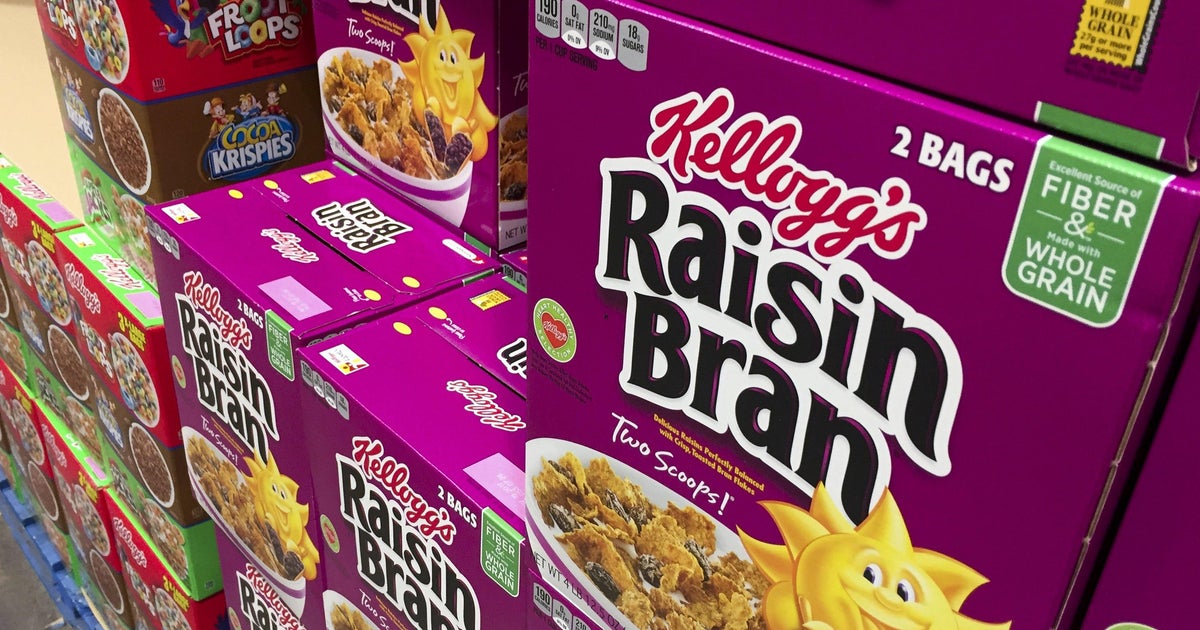
As the federal authorities moves to improve principles for what meals can activity “nutritious” labels, makers are pushing back again.
Some of the greatest makers of cereals, frozen and packaged foods have submitted dozens of claims to the Foodstuff and Drug Administration objecting to new rules that would exclude food with higher amounts of included sugar and salt from becoming labeled as “healthy” on packaging. Some manufacturers have even named the polices unconstitutional, saying they violate companies’ Initial Modification legal rights.
The Food and drug administration very last drop moved to update its necessities about what foodstuff can use the word “balanced” on packaging — the very first adjust given that the rule was applied in the 1990s. The proposed improvements would leave out higher-sugar, lower-fats items that at the moment are permitted to use the balanced label nowadays, these as fruit-flavored lower-extra fat yogurts and Raisin Bran cereal.
That is unfair, numerous food firms gripe, complaining that the more rigorous nutritional expectations would wrongly malign a variety of popular foods. The rule “immediately disqualifies whole categories of nutrient dense foodstuff,” Kellogg’s wrote in a February 16 comment on the agency’s proposal.
Common Mills goes further, arguing that the FDA’s “extremely restrictive” rule violates companies’ legal rights to cost-free speech.
“[T]he Proposed Rule precludes lots of objectively healthy solutions, which includes these promoted by the Nutritional Pointers, from participating in truthful, nonmisleading commercial expression — and these extremely restrictive boundaries for ‘healthy’ violate the Very first Amendment,” the packaged-foods giant writes.
Basic Mills has a slew of properly-identified models, together with Annie’s, Betty Crocker, Cascadian Farm, Pillsbury and Yoplait, as very well as cereals Chex, Cheerios, Choco Puffs, Cinnamon Toast Crunch, Raisin Nut Bran and Wheaties.
The window for publishing community feedback on the proposed rules closed before this thirty day period. The Fda will now overview the opinions, though the timing of a remaining rule is uncertain.
The Client Manufacturers Affiliation, whose customers include Coca-Cola, PepsiCo, Hain Celestial and the Campbell Soup Firm, took a identical tack, creating that “customers have a Initially Modification appropriate to get truthful data about solutions and suppliers have a 1st Modification suitable to provide it to them.” The team approximated that 95{d589daddaa72454dba3eae1d85571f5c49413c31a8b21559e51d970df050cb0e} of foodstuff at present on the industry would not qualify for a “nutritious” label underneath the government’s new requirements.
Form, the granola bar corporation, took difficulty with the FDA’s proposed limits on included sugars in foods, stating they “established a barrier for fruit, vegetable, and protein foods innovation” and would lead to additional corporations working with artificial sweeteners in their products to mimic the style of sugar-sweetened food.
“Standards for use of ‘healthy’ should not be so restrictive that they permit only a very confined variety of meals to qualify, because this could direct individuals to conclude that other nutrient dense foods possibilities are ‘unhealthy,'” the company included.
No label, no consumers?
Conagra Brands, creator of the “Healthy Choice” brand name of frozen meals, offered a blunt evaluation: If it reinvents “Healthy Choice” to comply with the new policies, people today will not likely get it, the firm explained.
“Conagra cannot continue to commit in ‘healthy’ innovation if we are not ready to fulfill the essential style, taking in tendencies and affordability our buyers count on. If the foodstuff does not taste fantastic, individuals will not purchase it,” Conagra claimed.
Numerous “Wholesome Alternative” things have been criticized for their higher volume of sugar or salt. For instance, the “Healthy Selection Sweet and Bitter Hen” food is made up of 21 grams of added sugar — 42{d589daddaa72454dba3eae1d85571f5c49413c31a8b21559e51d970df050cb0e} of the present-day proposed daily benefit — though giving just 390 calories.
“Meeting persons exactly where they are”
The American Frozen Food Institute explained that restrictions on sodium would consequence in “wholesome frozen goods getting excluded due to a modest volume of sauce that tends to make the product a lot a lot more very likely to be consumed.”
“Customers previously know that total fruits and vegetables are balanced and could not be consuming this kind of products and solutions for a range of explanations,” the Institute said, adding that the Fda really should be “meeting folks where they are.”
The Shopper Manufacturer Affiliation echoed this comment, producing: “Several buyers are constrained from preparing foods and treats from ‘plain’ substances because of to minimal time, affordability, simple entry to outlets that sell these elements, kitchen area sources, and cooking expertise. And most individuals do not normally eat meals in a simple, unflavored variety.”
Despite this industry’s grousing, several diet authorities have arrive out in favor of the FDA’s revised rules. Requirements for the “healthier” label have not adjusted in the 28 a long time considering the fact that it was initially created, even as the community comprehending of what’s healthy has evolved.
“We want to use policies that advocate for a much healthier diet program than we at the moment have, and that’s why we believe that the healthier claims need to be allowed only for foods that are actually healthful,” stated Eva Greenthal, senior plan scientist at the Middle for Science in the General public Curiosity. The CSPI typically supports the new principles but suggests they permit much too considerably refined grain and processed fruit.
Potent marketing
Under the FDA’s proposed guidelines, foodstuff substantial in sugar, sodium or refined grains will never be banned relatively, food makers would not be permitted to label this kind of products and solutions as “balanced,” which can be a effective promoting claim.
“There are at present some merchandise labeled ‘healthy’ that comprise crazy quantities of sugars,” Greenthal said.
That’s a remnant of the minimal-extra fat craze of the early nineties, when processed-food makers developed a slew of supposedly reduced-unwanted fat treats that contained significant amounts of sugar and salt to compensate for the loss of flavor. Considering the fact that then, exploration has overturned the belief that all fats is poor for overall health whilst demonstrating the hazardous results of large sugar use.
Greenthal sees the revised Fda recommendations as mainly constructive, whilst she uncertainties it will have significantly effects on Americans’ taking in habits.
“What we definitely need are necessary labels that force organizations to disclose information they otherwise conceal,” she said. “Providers are extremely swift to tell us if a products is high in fiber or vitamin C, but not when a product or service is large in saturated body fat, sodium, or sugar. These are the items that are linked to coronary heart sickness, substantial blood strain and diabetes.”
The CSPI not too long ago petitioned the Food and drug administration to involve foods makers to prominently label these ingredients on the front of a food offer.
“The Fda just requirements to take into account its mission, to secure community health, and use that as its guiding star as it faces sector force to prioritize industry passions about community health,” Greenthal mentioned.





